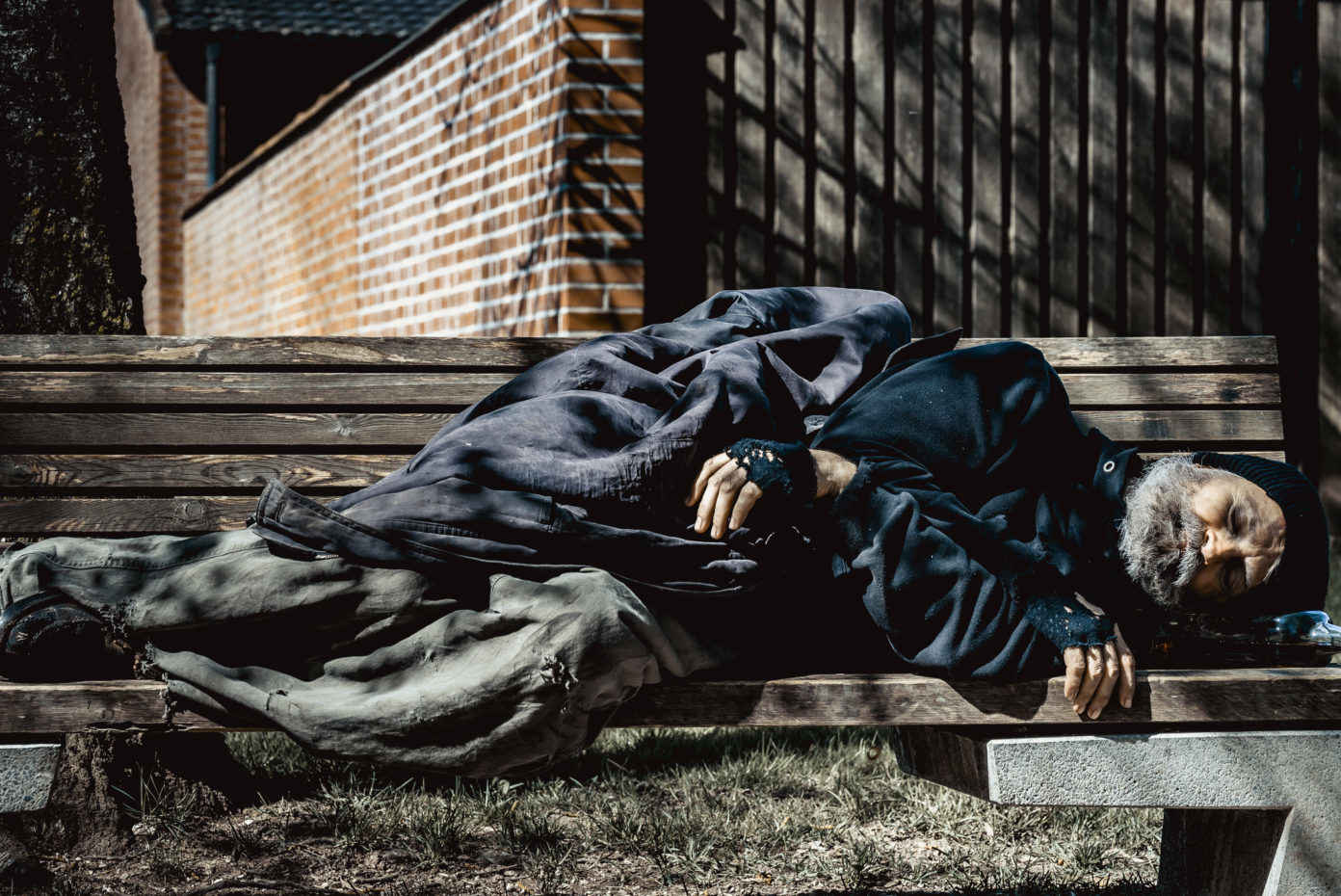People, Not Problems: Confronting the Health Justice Implications of Laws that Criminalize Homelessness
February 13, 2018
Overview
In early January, the City of Phoenix, Arizona cracked down on a homeless encampment located on a traffic median in its trendy Roosevelt Row neighborhood, enforcing a local ordinance criminalizing sleeping, cooking, and other basic life-sustaining behaviors on city property. Individuals living at the encampment could move on or face citation or arrest. The city claimed the encampment endangered public health and safety. Yet, penalizing people experiencing homelessness for surviving does exactly that.

Arizona’s housing crisis is among the worst in the country: there are only 26 affordable and available homes for every 100 extremely low income renter households in the state and increasing numbers of Arizonans sleep on the streets. Rather than invest in public housing assistance and supportive services to meet current needs, however, some municipalities penalize those who have no safe place to go for engaging in life-sustaining activities. This approach follows national trends: the creation and enforcement of municipal law criminalizing homelessness is escalating in U.S. cities.
Homelessness is a pervasive and profound health injustice. Housing stability, quality, and status are critical determinants of health. Homelessness and associated barriers to care cause and complicate acute, chronic, and behavioral health conditions, resulting in disproportionately higher rates of emergency department utilization than in the general population. Much like the criminalization of HIV, the criminalization of homelessness creates additional barriers to housing, health care, employment and other basic human needs, perpetuating the cycle of homelessness and corresponding health inequities.
The solution to this constellation of social injustices lies in housing, not handcuffs. Permanent supportive housing, an evidence-based solution to homelessness, combines non-time-limited and unconditional affordable housing with wraparound services to dramatically alleviate individual health challenges and population-level health system costs.
Recognizing these benefits, innovative jurisdictions are implementing and pursuing criminalization alternatives rooted in a housing as health care agenda. Medicaid delivery system and payment reform is a consistent theme. Although federal law generally prohibits federal financial participation for room and board in home and community-based settings,* state Medicaid programs are free to pay for these services with their own funds. Additionally, a number of state plan options and waiver authorities enable federal matching funds for housing-related supportive services. New York State’s Medicaid Redesign Team Supportive Housing Initiative leverages a Section 1115 demonstration waiver and state resources to finance and reinvest in rental subsidies and supportive services for high-cost and high-need Medicaid enrollees. The Hawaii State Legislature is considering several legislative reforms to equitably address homelessness, including Senate Bill 2, which would require the state auditor to assess the impact of using Medicaid funds to cover the “treatment of homelessness.”
Where political will and policy advocacy prove insufficient, litigation provides a critical means of combating the criminalization of homelessness. Some federal courts have ruled that ordinances criminalizing the unavoidable consequences of homelessness violate federal and state constitutional provisions. For example, in Jones v. City of Los Angeles (2006), the United States Court of Appeals for the Ninth Circuit ruled that arresting individuals experiencing homelessness for sitting, lying, or sleeping on public property when other shelter was unavailable violated the Eighth Amendment’s constitutional protection against cruel and unusual punishment.
Eradicating laws that criminalize homelessness is an important step toward health justice for people experiencing homelessness. Additional legal and policy reforms grounded in a housing as health care approach will help enable a healthier and more equitable future.
The Network for Public Health Law is ready to assist your efforts to advance health justice for people experiencing homelessness and other vulnerable populations. Our attorneys can provide strategic legal and policy technical assistance and substantive resources to help you navigate relevant legal landscapes and identify legal, regulatory, and policy opportunities to improve public health. As part of our work on these issues, we are dedicating a session at the 2018 Public Health Law Conference in Arizona to address how laws and policies impede and advance health justice for individuals experiencing homelessness.
This post was developed by Madeline Morcelle, Staff Attorney at the Network for Public Health Law – Western Region at the Sandra Day O’Connor College of Law, Arizona State University.
The Network for Public Health Law provides information and technical assistance on issues related to public health. The legal information and assistance provided in this post does not constitute legal advice or legal representation. For legal advice, readers should consult a lawyer in their state.
Support for the Network is provided by the Robert Wood Johnson Foundation (RWJF). The views expressed in this post do not necessarily represent the views of, and should not be attributed to, RWJF.
* The law provides a narrow exception for certain respite care services and unrelated live-in caregivers.
